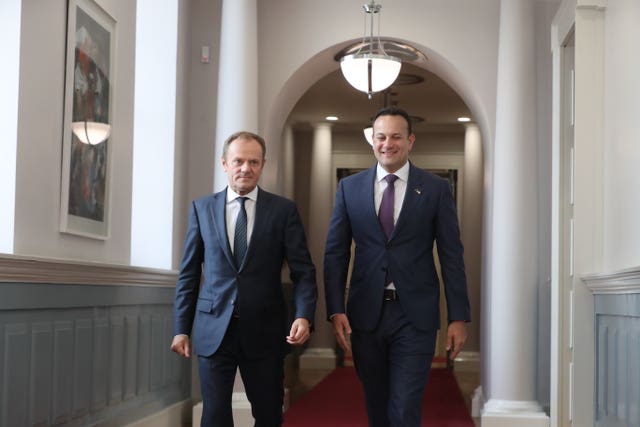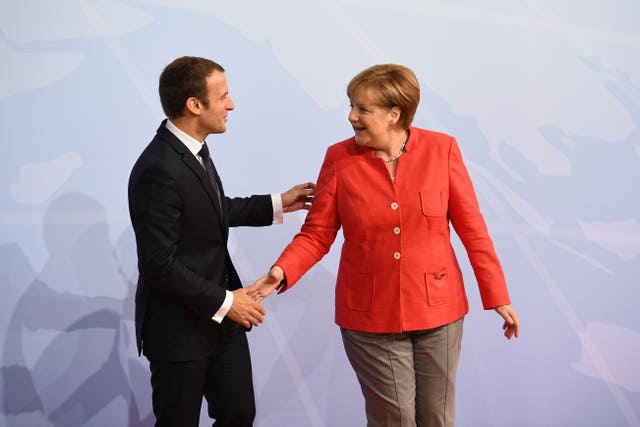UK must fundamentally change course to avoid no-deal Brexit, says Varadkar
The Irish Premier says the EU should be open to a long extension of Article 50 if options previously rejected by the UK are put back on the table.

Irish premier Leo Varadkar has said Europe must be open to a long extension of Article 50 if the UK decides to fundamentally reconsider its approach to Brexit.
But the Taoiseach said it is up to the UK to indicate how it plans to proceed in order to avoid the UK crashing out of the EU.
Mr Varadkar made the comments after the Withdrawal Agreement was defeated for a third time in the House of Commons on Friday.
In a statement, he said: “The Government notes the decision of the House of Commons to reject the indicative Withdrawal Agreement.
“It is now up to the UK to indicate how it plans to proceed in order to avoid a no-deal scenario.
“The European Council has agreed unanimously that the Withdrawal Agreement will not be reopened.”
Mr Varadkar said Ireland had been “preparing intensively” for a no-deal scenario but no-one should underestimate the difficulties it would present for all countries, including the UK.
He said: “It is not clear that the UK has fully understood that no-deal is not off the agenda. Rather, it’s a growing possibility.”

Mr Varadkar welcomed the decision of EU Council president Donald Tusk to call a European Council meeting on April 10.
“It is now incumbent on the UK to chart a realistic way forward for consideration at that council meeting,” he said.
“I believe we must be open to a long extension should the United Kingdom decide to fundamentally reconsider its approach to Brexit and put back on the table options previously ruled out.
“I believe that will result in a generous and understanding response from the 27.”
The Taoiseach is due to hold bilateral Brexit talks with the French and German leaders next week and he will also be speaking by phone to other heads of government ahead of the EU Council meeting.

Mr Varadkar will travel to Paris on Tuesday for a meeting with French president Emmanuel Macron, while German chancellor Angela Merkel will be in Dublin for a one-day visit on Thursday.
A spokesman for the Irish Government said both meetings will focus on the latest developments on Brexit.
He added the discussions will address current EU issues and other matters including the Future of Europe agenda ahead of the summit in Romania and the appointment of a new European Commission, Council President and High Representative in June.
“These two meetings reflect the deep and warm relations Ireland enjoys with both France and Germany, including the support shown to Ireland during the Brexit negotiations,” the spokesman said.
Speaking ahead of next week’s meetings, Mr Varadkar said: “Both leaders have been strong and consistent allies of Ireland in responding to the unique challenges we face from Brexit.
“I will again express the Government’s gratitude for their continuing solidarity.
“We will take stock of the latest developments on Brexit when we meet, efforts to secure ratification of the Withdrawal Agreement and no-deal planning.
“We will also take the opportunity to consider the Future of Europe agenda.
“Important discussions lie ahead, with an informal summit on the Union’s strategic agenda due in early May in Sibiu, and negotiations on the EU budget for the period after 2020 due to be finalised by the end of this year.
“While I meet regularly with both the President and Chancellor at the European Council in Brussels, these bilateral meetings are an important opportunity for an in-depth and one-to-one exchange on how to further strengthen our relations away from the bustle of the European Council.
“Our bilateral relations with both Germany and France are better than ever and will become even more important as we move to a European Union of 27 members.”





